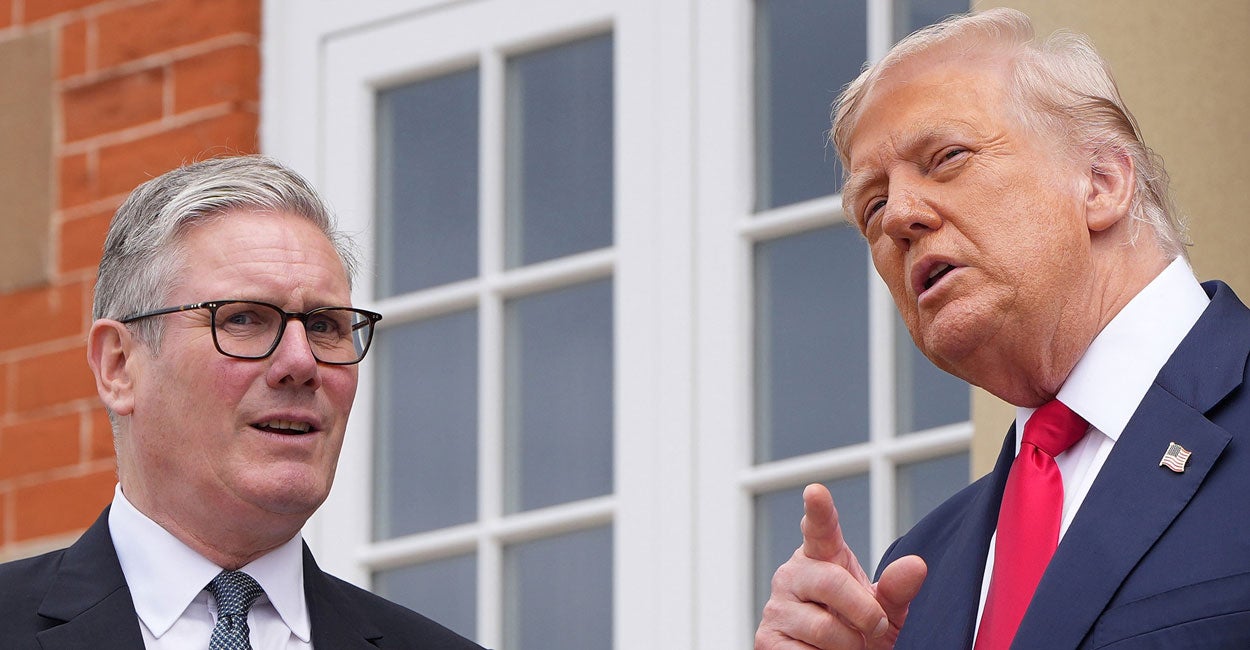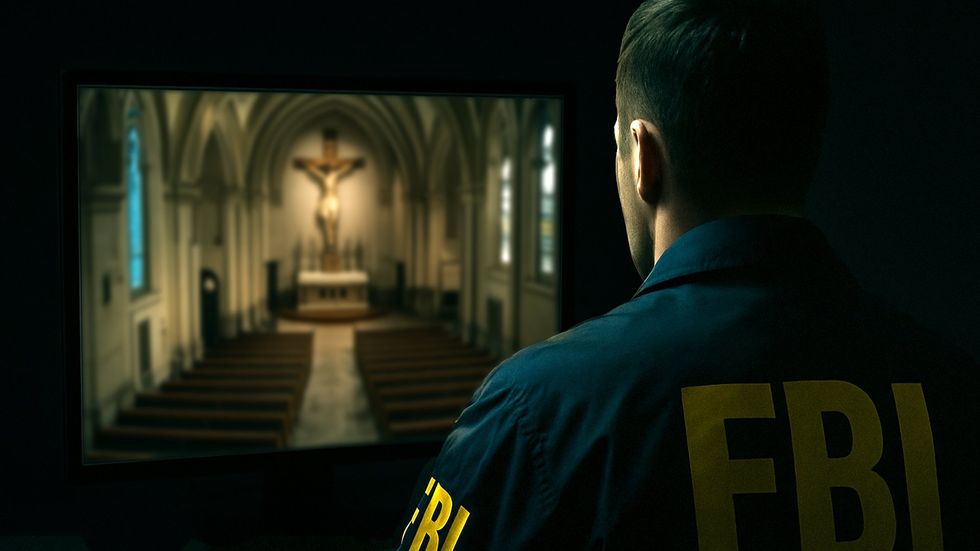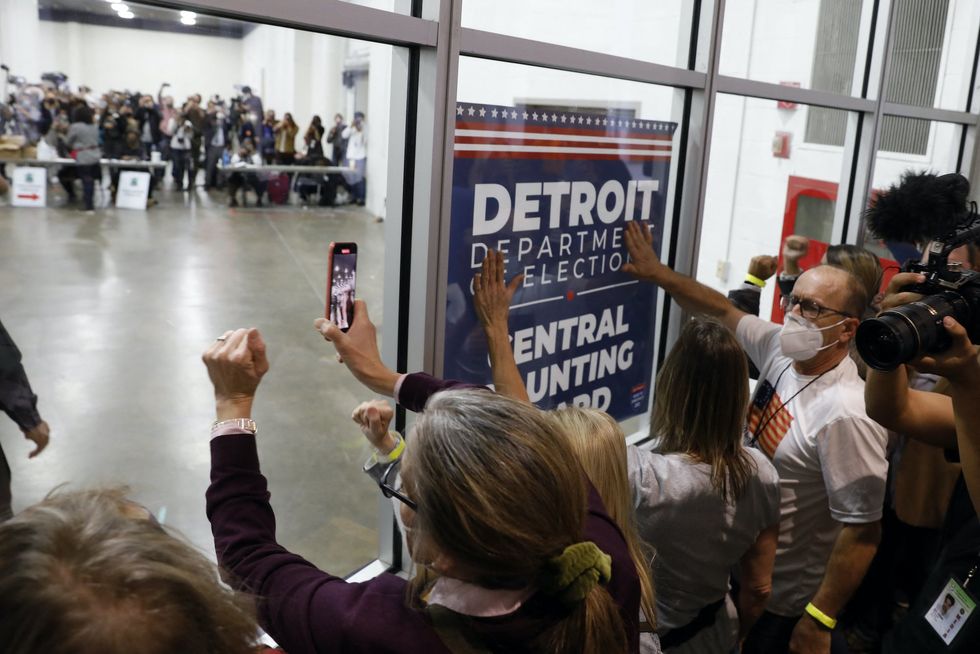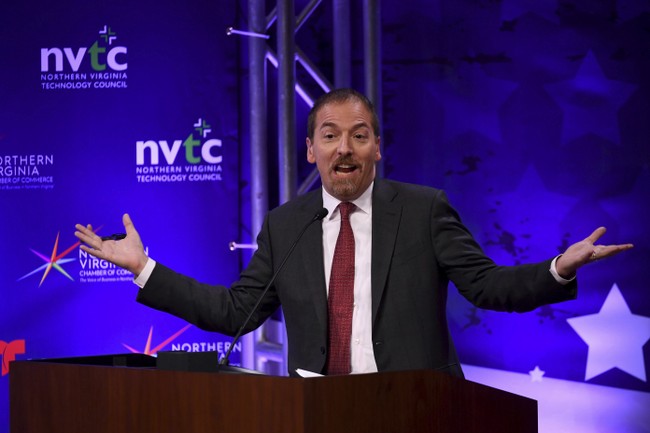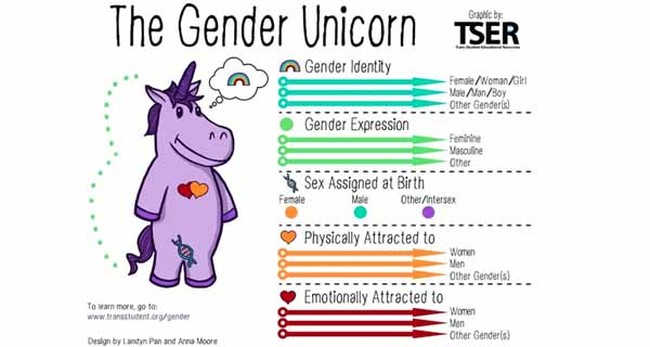
www.theblaze.com
Trump bans weaponized feds — but FBI still hunts Catholics
On his second day back in the Oval Office, President Donald Trump signed an executive order to shut down the weaponization of the federal government — but the FBI is still targeting traditional Catholics, defying both the law and his directive. Americans were outraged after a declassified FBI memo approved in October 2022 revealed that Richmond FBI had begun investigating some "radical-traditionalist" Catholics for their supposed ties to "the far-right white nationalist movement" as well as their opposition to abortion and "LGBTQ protections" in the law. Why is the FBI 'snooping on my private chat of 43 Catholic men in South Louisiana?'Then-Director Christopher Wray insisted in July 2023 that the memo was "a single product by a single field office," but the Committee on the Judiciary and the Select Subcommittee on the Weaponization of the Federal Government later determined that FBI offices in Portland, Los Angeles, and Milwaukee also contributed to its development.While the Trump administration has made significant strides in neutralizing the anti-Christian bias pervading federal agencies and the threat of the deep state against law-abiding Christian Americans, it seems that some rad-trad Catholics may still be under surveillance.Blaze News spoke with Ross McKnight, one of the leaders of La Nouvelle Vendée, a Catholic group comprising mainly men that aims to "resist secularism," reclaim their "patrimony," and "restore Christendom in Louisiana by implementing the Doctrine of the Social Reign of Christ the King."McKnight said that FBI Special Agent Beau Barker has made contact with him and another member in recent weeks, expressing concerns about some "online" comments.Living out the Catholic faith, unredactedMcKnight told Blaze News that the group formed two years ago and that he and about 40 other men have a private Telegram chat in which they readily share their views. He made clear that the group holds to traditional Catholic teaching without apology."There's a necessity for Catholic social action towards the social kingdom of Christ," he said. And to that end, he and his fellow LNV members gather to pray the rosary, especially at events that promote sin, such as Pride parades.McKnight also noted that the religion of Islam is a "heresy" and therefore is in conflict with the Catholic Church. "Muslims are historically what we would call a public enemy of the Catholic Church," he said.On account of these views regarding Islam, the group strongly opposed the sale of a Catholic church in Buffalo, New York, to a Muslim group that intended to convert the sacred building into a mosque. McKnight shared a screenshot of part of their Telegram conversation about the prospective mosque. In it, McKnight states: "I look forward to the day wherein we [redacted], [redacted], and completely [redacted] that place, which may not be so far away."RELATED: Police drag away a man for saying he likes bacon near a sprawling mosque construction site Screenshot shared with Blaze NewsMcKnight confirmed to Blaze News that he used the word "redacted" in brackets intentionally, though he did not clarify what he meant."We don't hate Muslims. We hate the heresy that is Islam. And so that's what we're fighting. We're not fighting Muslims as people," he explained."I don't have any intention of doing anything violent," he continued.The FBI gets involvedMcKnight said he was just going about his business on August 22, 2025, when he received an unexpected phone call. The caller identified himself as Beau Barker, a special agent with the FBI."Hey, I'd like to talk to you about something you posted online," Barker said, McKnight recalled.When McKnight demurred, Barker more or less indicated McKnight didn't have much of a choice. "I asked him for details. He wouldn't provide them. He just said, 'I want to talk to you,'" McKnight explained. "And I said, 'Well, is it voluntary?' He said, 'Yes, but ... basically, we'll come to you if you don't come to us.'"'We do not conduct investigations based solely on First Amendment protected activity, including religious practices.'Just a few days later, Barker rang McKnight again. When he didn't get an answer, he and a sheriff's deputy just showed up at McKnight's house, McKnight claimed.Once again, McKnight pressed Barker for "details," wanting to know why an FBI officer was so interested in him, but to no avail. Barker never divulged any details and left the property without much more conversation. McKnight soon hired a lawyer. Last week, he told his attorney to advise Barker that he would not be speaking with him.Blaze News reached out to the St. Tammany Parish Sheriff's Office to confirm that a deputy accompanied Barker on this visit. A representative said only that she found no record associated with McKnight's name. The representative did not respond after Blaze News attempted to find out whether there were any records associated with McKnight's address.'Right on the line'Because Barker was so tight-lipped about the purpose of his contacts with McKnight, McKnight is left to speculate about what that purpose might be. Since Barker apparently mentioned concerns about something McKnight "posted online," he cannot even be sure the issue stems from the private Telegram group. However, Barker also reportedly made contact with another member of the LNV, who indicated that the FBI "found something borderline threatening" in their messages.The other member then confirmed that Barker was focused on McKnight's "[redacted]" statement. Without actually crossing into threatening territory, the FBI suggested to McKnight's friend that those words in reference to the mosque were "right on the line.""Which indicates to me that it's not over the line," McKnight noted to Blaze News.RELATED: The idols and lies behind the Minneapolis Catholic school shooting Kumpol Pijadee/Getty ImagesTo the best of his knowledge, McKnight and his friend are the only two members of La Nouvelle Vendée who have been contacted by federal agents.McKnight does not know how the FBI became so familiar with his group and their conversations, whether Barker or another agent infiltrated the group chat or whether a group member with "a chip on their shoulder" aired grievances with the agency.In response to a request for comment, FBI New Orleans told Blaze News: "The FBI's mission is to protect our communities from potential threats while simultaneously upholding the constitutional rights of all Americans. We focus on individuals who commit or intend to commit violence and activity that constitutes a federal crime or poses a threat to national security. We do not conduct investigations based solely on First Amendment protected activity, including religious practices."The case also points to an apparently ongoing problem of FBI agents using weak pretenses to investigate faithful Catholics despite the change in leadership in the White House and on the Seventh Floor. Blaze News has reached out to Director Kash Patel for comment.Why is the FBI "snooping on my private chat of 43 Catholic men in South Louisiana?" McKnight wondered."I'm just a nobody," he added.Like Blaze News? Bypass the censors, sign up for our newsletters, and get stories like this direct to your inbox. Sign up here!









